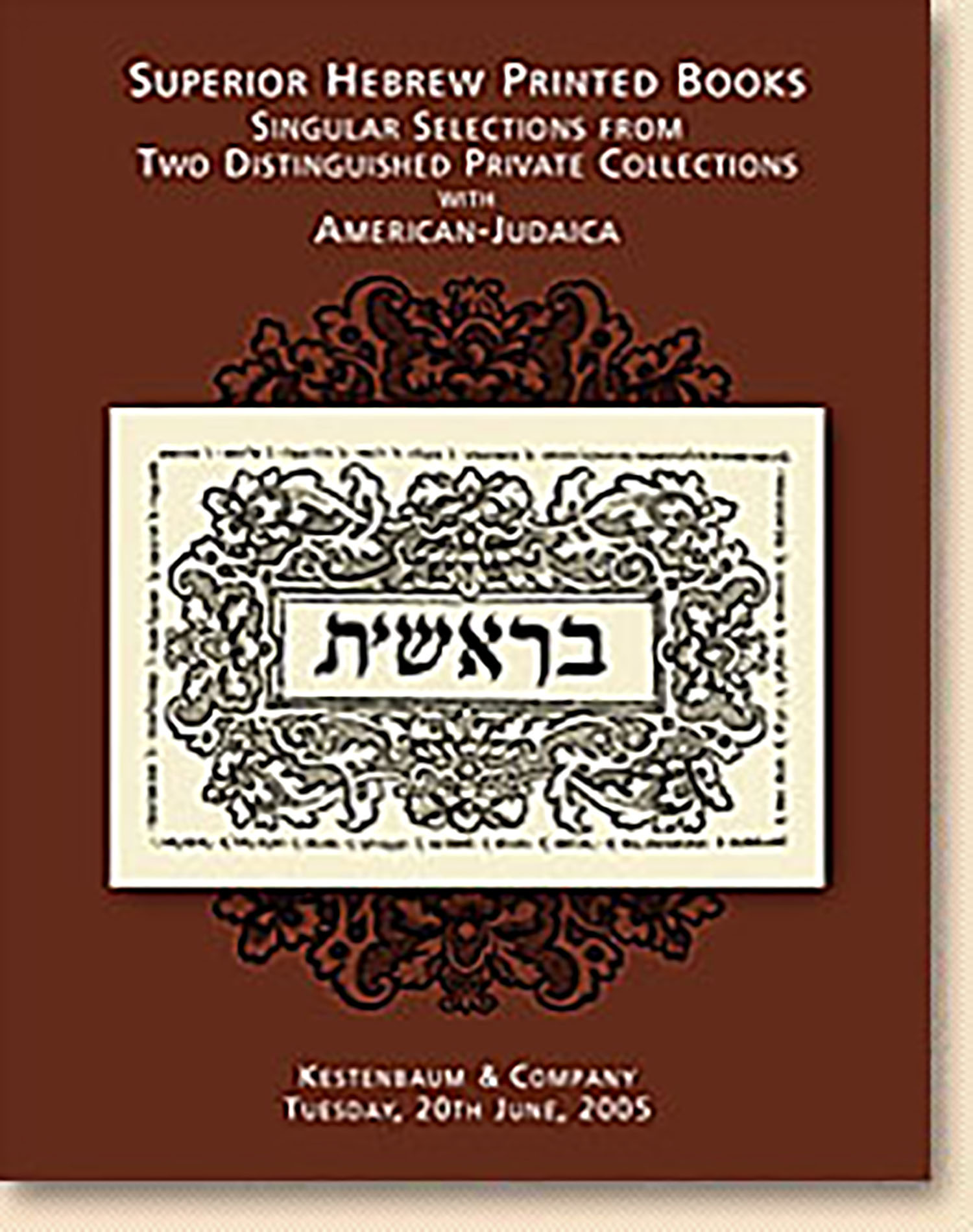Midrash Chamesh Megilloth Rabatha [on the Five Scrolls]

AUCTION 29 |
Monday, June 20th,
2005 at 1:00
Superior Hebrew Printed Books: Singular Selections from Two Distingushed Private Collections with American-Judaica.
Lot 43
(MIDRASH)
Midrash Chamesh Megilloth Rabatha [on the Five Scrolls]
Venice: Justinian-Adelkind 1545
Est: $3,000 - $4,000
Traditionally each of the Five Scrolls is reserved for a different occasion in the Jewish year: The Song of Songs is read on Passover; Ruth on Shavu’oth; Esther on Purim; Lamentations on the Fast of the Ninth of Av; and Ecclesiastes on Sukoth.
The first of the five Midrashim, Shir ha-Shirim Rabbah, was also known in medieval times as “Midrash Chazitha” on account of the first keyword of the text, a citation of the verse in Proverbs 22:29, “Chazitha ish mahir bi-melachto.”
The Midrash on Lamentations is preceded by a long overture, or Pethichatha. It begins “Rabbi Abba bar Kahana pathach” (Rabbi Abba bar Kahana opened). In Chassidic circles it was playfully interpreted that the rabbi named, opened a “tzinor” or conduit of divine inspiration.
The Aramaic of the Midrashim is chock-full of obscure words and is a challenging text to absorb.
Traditionally each of the Five Scrolls is reserved for a different occasion in the Jewish year: The Song of Songs is read on Passover; Ruth on Shavu’oth; Esther on Purim; Lamentations on the Fast of the Ninth of Av; and Ecclesiastes on Sukoth.
The first of the five Midrashim, Shir ha-Shirim Rabbah, was also known in medieval times as “Midrash Chazitha” on account of the first keyword of the text, a citation of the verse in Proverbs 22:29, “Chazitha ish mahir bi-melachto.”
The Midrash on Lamentations is preceded by a long overture, or Pethichatha. It begins “Rabbi Abba bar Kahana pathach” (Rabbi Abba bar Kahana opened). In Chassidic circles it was playfully interpreted that the rabbi named, opened a “tzinor” or conduit of divine inspiration.
The Aramaic of the Midrashim is chock-full of obscure words and is a challenging text to absorb.
